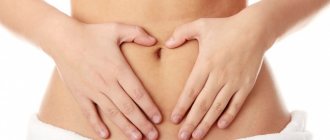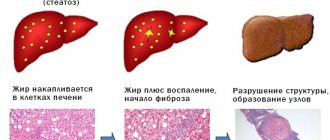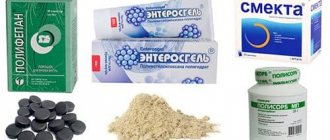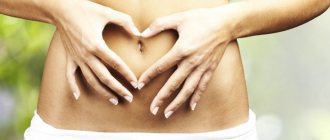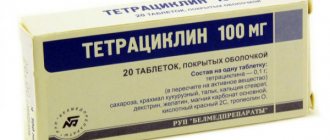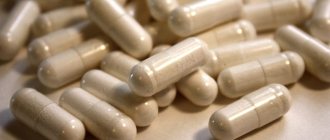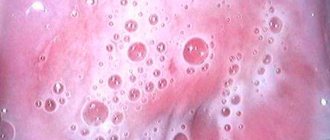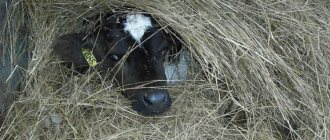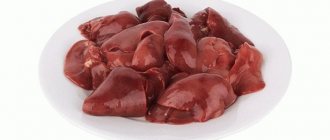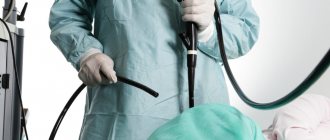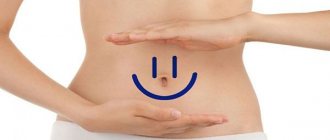Preventing pathological processes is easier than treating them. Many people have to use antibiotics in large quantities. At the same time, people do not think about their liver. Over time, pathological processes make themselves felt. Stopping antibiotics to prevent side effects is difficult. Infectious processes are often the reason for turning to specialists. It is impossible to eliminate such pathologies without antibiotics. The harmful effects of drugs on the liver can be reduced.
Some antibacterial agents may cause side effects. If they are indicated for patients, you need to familiarize yourself with the consequences. In most cases, doctors themselves warn patients that they may experience side effects. A gentle treatment regimen is selected. Often, high-quality antibiotics cost a lot of money. Many people try to save money by using something cheaper instead. Such actions often cause serious health problems.
Supporting patients during antibiotic treatment
If the course of therapy involves the mandatory use of antibacterial agents, doctors advise adjusting the diet and taking hepatoprotectors. You need to drink more water to speed up the process of removing drug breakdown products from the body. Doctors often recommend Essentiale or similar products. Phospholipids strengthen liver cells and increase their ability to resist aggressive microelements. If you follow simple recommendations, you can use antibiotics without fear.
Medicines for liver restoration
Another method of recovery, in addition to a mandatory diet after taking antibiotics, is the use of special medications - herbal remedies. These include hepatoprotectors, which have a restorative effect on organ cells, protect against toxic substances, and have an antioxidant effect. They are usually made from milk thistle extract, artichoke, and pumpkin seed oil. You need to drink them for quite a long time - at least 2 months.
Among the drugs that promote the restoration of liver cells, the following groups are distinguished:
Preparations with milk thistle and other medicinal herbs: Gepabene, Karsil, Silibor, Liv 52, Ovesol, Chofitol, Galstena. They have excellent antioxidant effects and stabilize cell membranes. Preparations with ursodeoxycholic acid: Ursosan, Urdoxa, Ursofalk. This type of medicine protects cell membranes, reduces inflammatory activity, stimulates cellular immunity and has a choleretic effect. Preparations with essential phospholipids: Essentiale Forte, Esliver Forte, Phosphogliv, Rezalut Pro. These medications promote regeneration and the production of new cells and have an antifibrotic effect.
Action of milk thistle
The liver is the most active organ, performs the function of purifying the blood, removing toxins, and producing bile. Due to heavy load, the quality of body cleansing decreases. Can dietary supplements with milk thistle be useful?
Let us list the properties of the plant:
- The seeds of the plant are a strong antioxidant. The plant contains vitamin E, a complex of phenolic compounds that fight free radicals.
- Hepatoprotective effect. The function of protecting liver cells is ensured. Silymarin strengthens the walls of hepatocytes, prevents the penetration of harmful toxins into them, and affects the restoration of damaged cells.
- Anti-inflammatory effect. Biologically active substances reduce the permeability of cell membranes and prevent the development of infections.
- Choleretic properties. Enzymes become liquid, cholelithiasis is prevented.
Uses of milk thistle
For treatment, you can use not only seeds but also other elements. Part of this plant has a good therapeutic effect in the treatment of various liver diseases. The maximum amount of active substances that will help cope with pathology is contained in the seeds. Therefore, it is advisable to use these components.
The ingredients can be stored in a cool place for a year, or grown in your own garden. To grind the seeds, you can use a coffee grinder. To improve the taste of the medicine, use honey.
Cleansing effect
Milk thistle seeds contain a lot of plant fiber. Antibiotics suppress the functioning of normal microflora and stimulate the activity of candida, which are insensitive to such drugs. Therefore, they can settle in the intestines. It is necessary to prevent candidiasis during antibiotic treatment. Such drugs differ in the degree of hepatotoxicity. Therefore, it is not always necessary to use hepatoprotectors. If the patient has chronic dysbiosis, the liver requires treatment.
No instructions or reference books are helpful in this matter. You will have to rely on the doctor's experience. Therefore, it is recommended that such problems be addressed to qualified professionals. The instructions list many possible side effects. There are drugs, after the use of which patients did not experience any problems. There are medications that consistently cause 3/4 of the side effects.
What does alternative medicine advise?
In herbal medicine for the effects of antibacterial agents on the liver, it is recommended to use proven folk remedies with hepatoprotective effects.
Milk thistle is sold in pharmacies in the form of meal (residual cake after oil extraction), dry herb. The seeds of the plant and the oil obtained from them are richest in flavonoids. The meal is taken one teaspoon before meals, chewed well and washed down with water. Children can prepare a decoction from it, first infusing it in a thermos.
Milk thistle oil - suitable for ingestion before meals or as a salad dressing. The decoction is prepared using a combination of chicory, milk thistle and corn silk. Leave overnight. During the day it can be consumed with or without honey.
There is a recipe for cleaning the liver with pumpkin. This product is widely recommended for use in food in the form of juice, side dish, and porridge addition. The tasty medicine is prepared by cutting off the top, removing the seeds and pouring liquid honey inside. Then the pumpkin is placed in a dark place for 10 days.
The contents of pumpkin include biologically active substances; it is useful to take a tablespoon before meals
The patient is asked to compensate for the loss of vitamins with decoctions of rose hips, cranberries, and black currants.
Folk remedies for recovery after antibiotics
Nettle tea. This is a universal medicine that effectively cleanses the body. You can prepare it from 2 liters of water and 2 tablespoons of finely chopped nettle leaves. The liquid must be infused and drunk throughout the day for 2 weeks. Fresh blueberries can remove antibiotics from the body.
You can get a lot of benefits from sauerkraut with Korean carrots. It is a wonderful natural source of fermented elements. In a blender you need to grind dried apricots and prunes. Add honey there and consume one tablespoon per day. Within 2 weeks.
Dill grains are poured with boiling water and brewed for 2 hours. The liquid is filtered and consumed several times a day.
Taking antibiotics poses health risks. Today, doctors prescribe such medications more often. Not everyone knows how to use antibiotics correctly. These are drugs that affect bacteria, microorganisms, and fill all the space around us. Antibiotics are substances of natural origin. Medicines are created thanks to the activity of microorganisms. Penicillin is formed from mold. Antibiotics only act on bacteria. Therefore, such medications are used for infectious processes.
Recovery methods
Antibiotics and liver are two components that require a third component. These are drugs that support the functioning of a stressed organ and protect against the negative effects of toxic substances. How to treat the liver?
Hepatoprotectors
Hepatoprotectors help stabilize the membranes of hepatocytes and prevent their destruction. First, let's look at the list of medicinal plants that stimulate liver regeneration:
- Milk thistle. The plant has hepatoprotective, anti-inflammatory, and antioxidant effects. Milk thistle contains silymarin, a substance necessary for the treatment of hepatitis, as well as the consequences of intoxication.
- St. John's wort. The flowers of the plant have an antiseptic effect. St. John's wort is a natural antidepressant. This property of the plant is especially useful during the period of liver recovery.
- Licorice. It contains glycyrrhizin, a substance that stops the inflammatory reaction.
- Artichoke. The plant is rich in beneficial substances, which together help cleanse the body of toxic elements.
Medicinal plants can be introduced into your daily diet. And they can also be taken in tablet form.
Now let's talk about pharmaceutical drugs that contain natural ingredients:
- Galstena. The drug is known for the presence of milk thistle, dandelion and celandine. Together, the active components of the drug support and protect the liver from negative effects, including antibiotics.
- Karsil. The main substance of the medicine is milk thistle. Karsil enhances the regenerating properties of the liver.
- Gepabene. It is rich in the presence of fume and milk thistle extract. The drug provides high-quality liver cleansing.
Liver treatment may include hepatoprotectors of animal origin. They contain liver extracts of cattle and pigs. Let's talk about the most famous animal hepatoprotectors:
- Hepatamine. It consists of nucleotides and proteins isolated from cattle cells.
- Hepatosan. The active ingredient is pig liver extract.
- Sirepar. It has a high content of vitamin B12.
Hepatoprotectors based on amino acid derivatives can help restore a damaged organ. They are prescribed for a wide variety of liver diseases. Well-known drugs in this group include the following:
- Heptral. The product protects and restores damaged hepatocytes, and is also an antidepressant.
- Hepa-merz. The composition includes amino acids such as L-ornithine and L-aspartate.
It is impossible not to mention hepatoprotectors with essential phospholipids. These elements are normally synthesized by the liver. They take an active part in cellular metabolism and the construction of hepatocytes.
A well-known drug in this group is Essentiale Forte. The phospholipids for the production of this medicine are obtained from soybeans. Essliver forte has a complex effect on liver function. The tablets cleanse, restore, and protect the cells of the damaged organ. Essliver has antiviral activity. In addition to essential phospholipids, the drug contains vitamins.
To restore the membranes of the cells of the blood purification organ, hepatoprotectors based on bile acids are often prescribed. Most often, the active substance of such drugs is ursodeoxycholic acid.
Hepatoprotectors will help completely restore the liver after taking antibiotics
Tubazh
This procedure is also called the blind probing method. It prevents stagnation in the biliary system and promotes the removal of bile residues into the intestinal lumen. Along with this secretion, toxins and parasites come out of the liver.
To achieve the desired effect, one procedure will not be enough. Experts recommend up to fifteen tubes no more than once or twice a week.
Before you begin cleansing the liver, you need to familiarize yourself with the list of contraindications. The procedure cannot be performed in the following cases:
- exacerbation of diseases of the digestive tract;
- cholelithiasis;
- helminthic infestations;
- period of pregnancy, lactation;
- critical days;
- acute poisoning of the body;
- elevated temperature;
- oncology;
- renal pathologies;
- blood pressure problems.
CAREFULLY! Blind liver probing is prohibited for children under 12 years of age.
It is best to set aside a day off for tubing. A cleansing enema should be performed the night before. A few days before blind probing, it is recommended to follow a dairy-vegetable diet. The patient should drink a lot of water. Apple and beet juices have a beneficial effect on the liver.
To carry out the procedure you will need magnesia or sulfate mineral water. To avoid spasms in the biliary system, it is recommended to take an antispasmodic drug.
Don't forget about the possible side effects of tubing. Patients should be prepared for nausea and bitterness in the mouth. In some cases, vomiting may even occur.
How to take antibiotics?
There are rules for using these drugs:
- Medicines must be taken strictly as prescribed. Doctors prescribe antibiotics for bacterial infections that threaten your health. There are diseases similar to inflammation caused by microorganisms. Antibiotics do not help treat the flu.
- Use of broad spectrum drugs. Medicines can suppress the activity of numerous bacteria. It is difficult to determine which microorganisms provoke diseases. For this purpose, special studies are carried out in medical institutions. In domestic conditions, it is necessary to use broad-spectrum drugs.
The effectiveness of medications is assessed on the third day after the start of treatment. If symptoms resolve during this period, antibiotics are stopped. Bacteria that are destroyed by medication cannot cause symptoms of the disease. As they are eliminated, the symptoms decrease. At the same time, body temperature decreases and weakness goes away. If the antibiotic does not work, the symptoms will continue to appear. In such cases, you will have to take broad-spectrum drugs.
Antibiotics should be taken at the same time every day. All medications act on bacteria for several hours. Therefore, a constant level of drug concentration in the blood must be maintained. If at any point there are fewer antibiotics available, bacteria may develop resistance. The pathology often drags on.
Antibiotics should be used in combination with medications that relieve symptoms. After discontinuation of antibacterial agents, probiotics are taken. These drugs improve our intestinal microflora. Antibiotics destroy all bacteria in the gastrointestinal tract. Good microflora produces vitamins necessary for life. Other bacteria do not enter the intestines and do not cause disease. Good microflora competes with pathogenic ones.
Ways of defeat
The liver suffers from many factors. In addition to its normal daily functions, it additionally takes on the blow from all the toxic substances that a person thoughtlessly ingests. The reasons why it is necessary to restore its normal operation are mainly:
- taking antibiotics and other medications;
- excessive alcohol consumption;
- uncontrolled consumption of fatty, fried foods;
- sedentary lifestyle;
- elevated ambient temperature.
Liver function
Many people prefer to use the same antibiotic repeatedly for the same location of symptoms. This cannot be done.
Liver cells constantly process blood, removing breakdown products of medications, alcohol, and organic components from the liquid.
The liver takes part in the following processes:
- digestion of food;
- stimulation of metabolism;
- ensuring blood clotting.
After prolonged use of antibiotics, the body's natural filter becomes clogged with waste. Iron in this state cannot process toxins that come with the blood. The disease can develop, sometimes anaphylaxis is diagnosed, and death cannot be ruled out. When organs are damaged after using antibiotics, the following symptoms occur:
- the side on the right under the ribs hurts.
- sleep problems.
- bad taste in mouth.
- dysbiosis in the intestines.
- kidney problems.
- skin rash.
When a lot of toxic microelements accumulate in the liver, the following diseases develop:
- cholestasis;
- allergy;
- drug-induced hepatitis;
- the appearance of blood clots;
- formation of connective tissue instead of hepatocytes.
How do medications destroy the liver?
Once in the liver, the toxic components of antibiotics and some other drugs are broken down by enzymes produced by the liver, after which they are bound by amino acids and excreted through the bile formed in the organ or transported to the kidneys, which excrete them in the urine. This mechanism operates constantly, however, with a sharp increase in the toxic effect on the liver, the organ’s resources may not be enough, and the toxic components of the drugs begin to accumulate in the liver tissue, causing damage to hepatocytes. The result may be the following pathological conditions:
- Iatrogenic (arising from the use of drugs) hepatitis. The effect of antibacterial drugs on the liver can vary from mild cell damage to severe inflammation. The latter is typical for the use of hepatotoxic antibiotics. The actual symptoms of drug-induced hepatitis do not differ from manifestations of liver inflammation of other origins; with intense inflammation, hepatitis may progress to cirrhosis;
- stagnation of bile - becomes the result of a disruption in the production of bile and an increase in its viscosity;
- Allergic reactions are a pathological response of the body's immune system to exposure to toxins.
What medications are recommended to use?
Restoring the liver after antibiotics involves the use of medications and hepatoprotectors.
The following types of medications are used:
- Herbal products.
- Ursodeoxycholic acid.
- Essential phospholipids.
Such drugs are used only with a prescription, and the results of a medical examination are taken into account.
Consequences of antibiotic therapy
These drugs eliminate not only harmful bacteria, but also beneficial ones, thereby disrupting intestinal function. After antibiotics, the death of lactic acid bifidobacteria and other elements necessary for the smooth functioning of the body is observed. This contributes to the development of a host of side effects, such as defecation disorders (constipation, diarrhea), disruptions in the digestive system, the occurrence of intestinal infections and dysbiosis. Medicines have a toxic effect on liver and kidney tissue, provoking irreversible cell changes, the development of hepatitis and other pathologies. Individual non-acceptance of the components of the product can cause severe allergic reactions.
Treatment in hospital
Liver cleansing after antibiotics is carried out not only at home. The patient's complex condition sometimes requires hospitalization. The effectiveness of therapy may decrease due to the development of concomitant pathologies. There are no nerve fibers in the liver, so pain symptoms appear due to expansion and pressure on nearby organs:
- Gallbladder.
- Pancreas.
- Rib cage.
In the hospital, diagnostics are performed, which include the following procedures:
- blood analysis;
- ultrasound examination of the diseased organ;
- biopsy, etc.
After this, the patient is given injections with hepatoprotectors and vitamins. Plasmapheresis is performed if indicated. Sometimes the lesion is so complex that the patient has to be operated on.
Effect of antibiotics on the liver
When taking these medications, our exocrine gland, the liver, experiences a tremendous impact.
Its functioning processes slow down or operate intermittently.
That is, what happens:
Inhibition of hematopoietic function; Weakening of the barrier function (the liver is not able to process a large number of toxins after the death of harmful microorganisms); Disorderly release of bile; Poor glycogen accumulation; Lack of synthesized proteins, fats and carbohydrates.
In this case, there is a threat of an allergic reaction of the body (slagging of the liver after antibiotics can lead to Anaphylactic shock), as well as the threat of infection of a weakened organ with parasitic pathogens and, in severe cases, liver failure.
Naturally, with such dysfunctions of the gland, people complain of cramping pain in the abdominal area, frequent headaches, irritability, insomnia, lethargy, a bitter taste in the mouth, physical inactivity, and the stomach and intestines (dysbacteriosis), kidneys (pyelonephritis), and skin also suffer. (appearance of red spots dermatitis).
Allergy to antibiotics
In cases where the symptoms of illness are not very pronounced, many people do not listen to the body’s signals for help and do not think about the sad consequences after a dose of antibiotics. Therefore, it is necessary to remind how to protect the liver from antibiotics, warn about the side effects of these drugs and offer a system for supporting and restoring the gland and the body as a whole.
If a dose of an antibiotic is prescribed (only a doctor should do this), then it is advisable to make sure of its necessity, the effectiveness of treatment, side effects, and also take into account the condition of your liver at the beginning of taking it.
As a result of consulting a doctor, you can get the right to choose a treatment regimen, either alternative therapy (restoration with natural antibacterial agents: onions, black pepper, garlic, decoctions and tinctures of medicinal plants), or the need for treatment with synthetic antibiotics.
Preventing organ damage during antibiotic therapy
Liver protection when taking antibiotics is ensured by following these recommendations:
- Doctors advise walking outside more often.
- drink more water.
- follow dietary recommendations.
- stop drinking alcohol.
Specialists who prescribe antibiotics with a hepatotoxic effect prescribe drugs to protect the liver and improve intestinal functionality. Sometimes they are used as dietary supplements for prevention; there is no scientific confirmation of the beneficial effects of such drugs on the body.
The negative effect of antibiotics on the liver is expressed by the following symptoms:
- heat;
- joint pain;
- inflammation of the skin;
- the spleen expands;
- the entire intestinal microflora is suppressed;
- allergy.
Anaphylactic shock is considered a common complication.
In this case, the following signs are observed:
- A person often gets tired.
- Breathing problems appear.
- Cold sweat is released.
- Blood pressure decreases.
- The skin turns pale.
- Nausea, vomiting.
- The mucous membrane of the mouth turns yellow.
- The person often faints.
The body's reaction to antibiotic use may be too strong. Therefore, symptoms appear instantly; without qualified help, the patient may die.
Diet
When a person is interested in the question of what to do if the liver hurts from antibiotics, the first priority for him is to correct his diet. To relieve the stress on the organ, you must adhere to diet No. 5 throughout the recovery period. Proper nutrition and diet include excluding fatty, salty, spicy foods, smoked foods, and sweets from the diet. The ban includes baked goods, canned food and preserves, carbonated drinks, coffee, alcohol and smoking.
The diet can include:
- steamed or boiled lean meat;
- porridge;
- fermented milk products;
- fresh or baked vegetables, fruits;
- whole wheat bread;
- freshly prepared juices;
- soups made from low-fat broths.
You need to include foods that restore the liver into your diet. These are vegetable oils, avocado, pumpkin, apples, green tea, oatmeal, cauliflower, chicken and beef liver. In this case, you need to drink more liquid. It is useful to drink beet juice, dried fruit compotes, and green tea.
Risk factors for liver damage
Of course, drug-induced hepatitis does not develop in every person who voluntarily takes certain medications. In some individuals, the likelihood of this pathology occurring increases significantly. Risk factors are:
- combination of several drugs, or polypharmacy. It has been proven that when a patient takes more than six medications, the likelihood of side effects reaches 80%.
- liver diseases.
- old age.
- pregnancy.
- genetic predisposition.
- incompatibility of certain drugs.
Among all antibiotics, drug-induced liver damage is most often provoked by tetracycline drugs.
